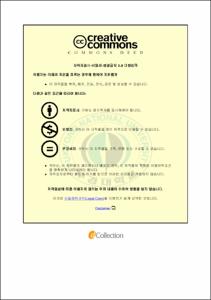초등학교 교사의 영어 어휘 빈도 직관에 관한 연구
- Abstract
- A Study on Elementary School Teachers' Intuitions about the Frequency of English Words
Hyang Mi Park
Graduate School of Education
Pukyong National University
Abstract
Nowadays vocabulary knowledge is an important part of learning the English language. Knowing a word includes knowing the degree of probability of encountering that word in every type of text and speech, which is called intuitions about frequency of English words. Especially in the English as a foreign language (EFL) education environment like Korea, vocabulary is strictly controlled in the national curriculum, and frequency is an important criterion because it will be the most efficient way to learn the vocabulary. At this point, if the teachers don't have the intuitions about English vocabulary frequency, they cannot provide a comprehensible and natural English input. Therefore, the purpose of this study was to analyze teachers' intuitions about English word frequency and the relationships between teachers' English competency and intuitions of frequency through a paper-and-pencil test battery.
An attempt was made to investigate the intuitions of English vocabulary frequency using two concepts. First, the teachers' ability to recognize the elementary vocabulary was assessed by asking teachers to distinguish the elementary-level from the secondary-level words based on the national English curriculum. Also, the teachers' ability to judge the frequency of words was tapped by having teachers order the target words according to their frequency intuitions.
The results are as follows: First, in the first questionnaire, teachers' ability to distinguish the elementary vocabulary was high (mean= 74%). This shows that most of the teachers had moderately high recognition ability, and that they intuitively know what kinds of words they should teach in the classroom. In the second questionnaire, the correlation between the judgement of word frequency and British National Corpus (BNC) word frequency turned out to be moderately high (r=.624), whereas the judgement of secondary-level word frequency was not high. These findings suggest that the teachers have better intuitions of word frequency at the elementary school level.
Interestingly, there was no significant relationship between teachers' English competency and intuitions about English word frequency. This calls for further research on why this may have been so.
- Issued Date
- 2010
- Awarded Date
- 2010. 2
- Type
- Dissertation
- Keyword
- 어휘 빈도
- Publisher
- 부경대학교
- Affiliation
- 부경대학교 교육대학원
- Department
- 교육대학원 초등영어교육전공
- Advisor
- 오준일
- Table Of Contents
- Ⅰ. 서론………………………………………………………… 1
1.1 연구의 필요성 및 목적………………………………… 1
1.2 연구과제………………………………………………… 3
1.2 연구의 제한점…………………………………………… 3
Ⅱ. 이론적 배경 및 선행연구………………………………… 5
2.1 어휘 지식과 구성 요소………………………………… 6
2.2 어휘 빈도…………………………………………………10
2.2.1 어휘 목록 선정………………………………………10
2.2.2 어휘 빈도…………………………………………… 15
2.3 선행 연구 ……………………………………………… 18
2.3.1 국내 연구 ………………………………………… 18
2.3.2 국외 연구 ……………………………………………20
Ⅲ. 연구 내용 및 방법……………………………………… 23
3.1 연구 참여자…………………………………………… 23
3.2 연구 도구……………………………………………… 26
3.3 자료 수집 및 분석 방법 ……………………………… 31
Ⅳ. 연구 결과 및 논의……………………………………… 33
4.1 초등 교사의 어휘 빈도 직관력……………………… 33
4.1.1 초등 교사의 초등 권장 어휘 선별력…………… 33
4.1.2 어휘 빈도 판단 능력……………………………… 40
4.1.2.1 초등어휘 빈도 판단 능력 …………………… 40
4.1.2.2 중등어휘 빈도 판단 능력 …………………… 45
4.1.2.3 초등교사의 어휘 선별 능력과 빈도 판단 능력 ………………………………………………………………… 53
4.2 초등 교사의 영어 능력과 어휘빈도 직관력의 관련성 54
4.2.1 초등 교사의 영어 능력과 어휘 빈도 직관력………54
Ⅴ. 결론 및 제언……………………………………………… 57
5.1 결론 ………………………………………………………57
5.2 제언 ………………………………………………………59
참 고 문 헌…………………………………………………… 61
부 록…………………………………………………………… 64
- Degree
- Master
- Files in This Item:
-
-
Download
 초등학교 교사의 영어 어휘 빈도 직관에 관한 연구.pdf
기타 데이터 / 787.16 kB / Adobe PDF
초등학교 교사의 영어 어휘 빈도 직관에 관한 연구.pdf
기타 데이터 / 787.16 kB / Adobe PDF
-
Items in Repository are protected by copyright, with all rights reserved, unless otherwise indicated.